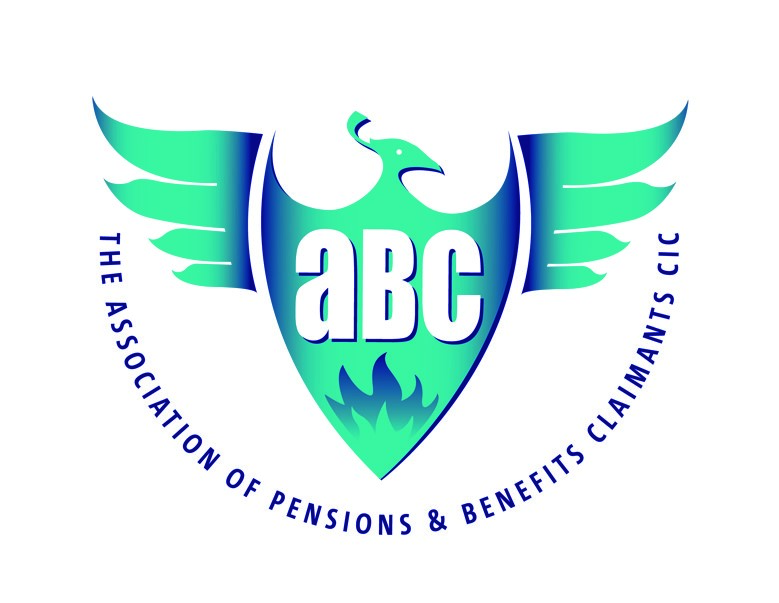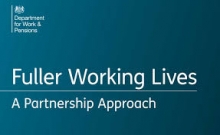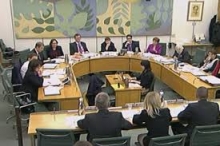Work TV
Watch our TV Channel dedicated to the ‘World of Work’. Explore our video library for informative videos featuring career opportunities at leading companies, franchising opportunities, further education and recruitment professions and their services.
Simon Collyer
Director Ken Loach Embarrasses the Government At The Bafta Awards With His Wholly Accurate Rhetoric
According to the Huffington Post a Conservative MP has come under attack for dismissing director Ken Loach’s BAFTA speech as “drivel”.
Loach, the Jeremy Corbyn supporting film maker, condemned the government for closing down its child refugee programme as he won a BAFTA for his film I, Daniel Blake.
But Tory MP Tim Loughton, who attended the ceremony in London, was unimpressed.
However, DWP claimants have known for some years that the picture Loach paints in his moving film iDaniel Blake, is an entirely accurate portrayal of how the government is treating the most vulnerable in UK society.
DWP Fuller Working Lives
‘Fuller Working Lives: a partnership approach’ explains how as the population ages, employers need to draw on the skills and experience of older workers to avoid loss of labour. It also explains how working longer can improve the health and wellbeing of individuals and bring the benefits of a multi-generational workforce to businesses. It sets out a number of new recommendations directly from businesses to support older workers to remain in the workforce and to help employers retain, retrain and recruit older workers so they have fuller working lives.
Recommendations around flexible working, retraining for a new career, self-employment, volunteering and phased retirement are put forward in the policy paper.
We intend to take the following actions to support older workers:
- empowering change through others – developing an evidence-based case for action
- supporting those who need more help – including women, carers, people with long-term health conditions and disabilities and black and minority ethnic groups
- reforming the Adult Skills system
- improving the Jobcentre Plus offer for older workers
Please find the report below:
Major New Concerns and Questions On Troubled Rollout Of Universal Credit
Work and Pensions Committee: Lord Freud, the architect of the Universal Credit, a major welfare reform, will appear before the Committee tomorrow, Wednesday 8 February, at 0930 in Wilson Room, Portcullis House. Channel 4 News is expected to run a story on the ongoing problems with Universal Credit on its evening news at 7pm tonight. Also attached is further evidence from Croydon Council, detailing the serious problems they are experiencing with housing and emergency accommodation due to widespread rent arrears, accrued as a result of late Universal Credit payments.
Last Monday’s update on the current status of Universal Credit, a single monthly payment intended as a simplified replacement for a set of other benefits, has raised a series of concerns and questions. The Committee has put an initial twenty of these in a letter to employment minister Damian Hinds (see attached), and has called former welfare reform minister Lord Freud to answer questions on the rollout and impact of the new benefit, which has been beset by delays and problems.
The chart below graphically illustrates the successive revisions to the rollout. As of December 2016, there were 430,000 people claiming UC: the DWP had predicted this to be fully rolled out to 6 million claimants at this point, meaning Government has reached 7% of its original target.
The evidence the Committee heard last Monday 23 January - full transcript here - sparked a series of deep concerns and further questions:
Winners and losers
Resolution Foundation: "...essentially there will now be more losers than gainers...the losers will be losing more and the gainers will be gaining less as well" (Q2)
Resolution Foundation: "...but the main issue there is that for the types of people that you think would probably be most responsive to work incentives - single parents and second earners in particular - the cuts to Universal Credit are making their incentives weaker" (Q2)
Delayed payment of UC
Croydon Council: "...we have seen at Croydon on average it is about 12 weeks before any form of payment is awarded, which is creating considerable pressures, as you can understand" (Q18).
Increasing rent arrears and its consequences
CPAG: "We already see cases where the housing cost element is not calculated in that time [the standard six weeks between application and first payment under UC], so there is a further wait for housing costs. I was reviewing case studies and there were two where people were at risk of eviction because the housing cost element had not been calculated" (Q8).
CPAG: "I have an example of a young family we were helping an adviser with where the delay meant they could not keep their agreement with their housing association, having previously had rent arrears, and court proceedings were reinitiated because their agreement to pay was weekly and they had no money for six weeks" (Q11).
Halton Housing Trust: "The issue with ourselves and UC is that if you look at the fact that in Halton there are 12,000 tenancies that the four main housing associations have between them, there are just over a thousand of those households are in receipt of UC. 920 of them are in arrears, and if you look at the figures, UC claimants make up just 9% of all our tenancies but they account for 37% of our arrears at the moment" (Q36).
Halton Housing Trust: "Just to give you, again, some scale, there are four times as many UC claimants in Halton in receipt of a valid notice of seeking possession compared to non-Universal Credit cases" (Q38).
Halton Housing Trust: "The issue for us is that there are delays of about three to four weeks after the APA amount has been deducted from their UC claim to the point at which landlords receive it [Alternative Payment Arrangement, whereby housing costs are paid directly to the landlord]. Bearing in mind that this a point at which normally arrears action is at that point being taken, that further delay is more likely to incur some form of legal action or legal costs to that claimant" (Q58).
People in emergency accommodation
Croydon Council: "What we have also found is that people in emergency accommodation— so people who are unlikely paid, incredibly vulnerable, fleeing domestic violence, mental health issues, single parents, English not their first language—are particularly hit by the approach to Universal Credit. " (Q20). In Croydon, rent collection from UC claimants in emergency accommodation has fallen from 91% to 59%, which is an annual cost to the taxpayer of £2.5 million (Q24 and written evidence).
Recovery of overpayments
Halton Housing Trust: "Significant overpayments [because of official errors] are occurring there and those are then being recovered from the claimant without them being notified and also at the maximum 40% level, which is causing significant financial hardship for those claimants... There is, it seems, a real drive within DWP to recover those overpayments as quickly as possible, so the timeframe over which there is discretion is reduced and also the amount that can be deducted from the benefit seems to be applied at the maximum" (Qq31-32).
Inappropriate conditionality and sanctions
CPAG: "At a recent seminar we did for advice workers...there were a couple of stories there of people with inappropriate conditionality applied whereby they had been in a position of having to choose to take a shift of work or attend an inappropriately scheduled Universal Credit interview. They were facing a “get a sanction or get in trouble at work” kind of position, so two different masters asking for mutually incompatible things, completely counterproductive to encouraging them to do more work" (Q48).
Halton Housing Trust: " To give you one simple example, we had a claimant who was living in one of our homes who was suffering from breast cancer and was in receipt of quite intensive chemotherapy, and she was sanctioned because she was unable to use the full 35 hours a week to find work because she was physically unable to" (Q53)
Halton Housing Trust: "Also, one of the other things I would highlight is the delays in work capability assessments being undertaken. There is a backlog at the moment and that is up to ten months...But again, that is also causing further hardship for some claimants" (Q70).
CPAG: "Just on that last point about claimants waiting for their work capability assessment, the consequences of that for Universal Credit claimants are quite severe because the way in which conditionality works has been altered...someone waiting to be assessed under the work capability assessment on UC, who has been handing in medical certificates, can still be required to spend all their time doing work search and be work available... It is people who are very unwell and it causes them an awful lot of anxiety because they are constantly worried that if they cannot keep up with the treadmill of applying for jobs, they will face a sanction" (Q71).
Flawed Real Time Information
CPAG: "We have seen several cases where real-time information was clearly inaccurate where the claimant had given evidence showing that it was inaccurate and where the Department had carried on making decisions on the basis of RTI, even in the face of more compelling evidence from the claimant, and that has caused clients problems" (Q68).
Full inquiry info: Universal Credit update
Committee Membership is as follows:
Frank Field (Labour, Birkenhead) (Chair); Heidi Allen (Conservative, South Cambridgeshire); Mhairi Black (Scottish National Party, Paisley and Renfrewshire South); Ms Karen Buck, (Labour, Westminster North); James Cartlidge, (Conservative, South Suffolk); Neil Coyle (Labour, (Bermondsey & Old Southwark); Richard Graham (Conservative, Gloucester); Luke Hall, (Conservative, Thornbury and Yate); Craig Mackinlay (Conservative, South Thanet); Steve McCabe (Labour, Birmingham Selly Oak); Royston Smith, (Conservative, Southampton Itchen)
Government Accepts Committee Recommendations Following Concentrix Debacle
The Work and Pensions Committee has published HMRC’s response to its report on Concentrix. The Committee was highly critical of both HMRC and its contractor for failings that left thousands of people, many of whom were vulnerable, without benefits to which they were entitled for weeks on end.
The Government has accepted many of the Committee’s recommendations:
HMRC has agreed to undertake a review of cases where Concentrix amended or terminated a benefit award but an appeal was not requested by the claimant. Of the 59,000 claimants, whose benefits were stopped or cut by Concentrix, 36,000 requested an appeal called a ‘Mandatory Reconsideration’. 87% of those were upheld in favour of the claimant. The Committee was concerned that the complex and demanding Mandatory Reconsideration procedure, which HMRC and Concentrix accepted as “a routine feature of the process” was daunting for claimants and there was “no doubt” that some people who wrongly had their tax credit stopped had not appealed. HMRC plans to complete this new commitment by March 2017.
The Government has agreed to publicise better the availability of hardship payments. It acknowledged that there has been “an absence” of such guidance on gov.uk and will publish new content in February 2017.
HMRC has committed to detailing the reasons it suspects fraud and error in letters to claimants. One of the Committee’s main concerns was that Concentrix did not inform tax credit claimants of the nature of suspicions against them, with claimants left not knowing what they had to prove or disprove, or how. For example, claimants tasked with proving they were single were not told the identity of the person with whom they were suspected of cohabiting. In some cases the person was a former landlord or a dead relative - potentially easily resolved
HMRC has agreed to extend any future deadline for the submission of supporting information by claimants to be extended if telephone handling performance again falls below acceptable levels. It has also begun work on enabling claimants to supply information electronically. The Committee found that claimants were “unfairly disadvantaged by the failure of the telephone system”. One single mother told the Committee she had spent 19 hours and 57 minutes on the phone trying to resolve her tax credit problems.
HMRC is taking independent advice on the next annual tax credit renewal process and will write the Committee in March 2017 with its proposals for improvements before proceeding. It intended to “shift the focus of compliance activity to a greater emphasis on education and preventing error and fraud at the point of entry to the system”. A longstanding criticism of HMRC’s approach to fraud and error is its focus on detection rather than prevention, with the consequent costs and hardship to claimants this causes.
Rt Hon Frank Field MP, Chair of the Work and Pensions Committee, said:
“The Committee is very pleased that HMRC has accepted our recommendations, which is testament to the work of Parliament on this issue. HMRC was right to fire its contractor, but many of the processes used by Concentrix were the same as those used by HMRC itself.
“In particular, the Committee welcomes the review of cases where claimants had their tax credits stopped but did not submit a formal appeal. For many claimants, particularly those who were unwell, lacked self-confidence or had caring responsibilities, the document-heavy process of challenging a wrong decision by Concentrix was surely prohibitively daunting. The real answer is of course to root out fraud and error at entry to the system rather than stopping benefits in payment as first resort.”
Full inquiry info: Concentrix and tax credits
Committee Membership is as follows:
Frank Field (Labour, Birkenhead) (Chair); Heidi Allen (Conservative, South Cambridgeshire); Mhairi Black (Scottish National Party, Paisley and Renfrewshire South); Ms Karen Buck, (Labour, Westminster North); James Cartlidge, (Conservative, South Suffolk); Neil Coyle (Labour, (Bermondsey & Old Southwark); Richard Graham (Conservative, Gloucester); Luke Hall, (Conservative, Thornbury and Yate); Craig Mackinlay (Conservative, South Thanet); Steve McCabe (Labour, Birmingham Selly Oak); Royston Smith, (Conservative, Southampton Itchen)
The Audit Offices Report can be downloaded here:
Colchester Job Fair Wednesday 15th February.
The Government Is Reviewing 23,000 Concentrix Cases
HMRC scrapped its deal with Concentrix the Company, which was employed to cut fraud and error from the tax credit system, after it was the subject of a series of criticisms, including from the Work and Pensions Committee.
Of the 59,000 times Concentrix attempted to stop payments, 36,000 were appealed and 87% of those had their complaints upheld, MPs said.
The Government has told the DWP Select Committee that it is now looking again at the other 23,000 cases.
“HMRC will review those cases to establish that decisions made by Concentrix were properly made and communicated to claimants,” it said.
" Frank Field, the Labour MP who chairs the Work and Pensions Committee, said: “The Committee is very pleased that HMRC has accepted our recommendations, which is testament to the work of Parliament on this issue”.
“HMRC was right to fire its contractor, but many of the processes used by Concentrix were the same as those used by HMRC itself”.
These cuts caused a great deal of distress and they have left claimants in debt. This is very welcome news indeed.

Image: Frank Field MP Chair of the DWP Select Committee.
Monday DWP Select Committee Gig Economy Debate
House of Commons Work and Pensions Committee
On Monday the Committee hears the first evidence in its inquiry into self-employment and the gig economy: from the perspective of current and former Uber, Hermes and Deliveroo couriers and drivers, who are classed as self-employed, and from three disabled people who run their own companies.
Disabled people are more likely than most to be self-employed, and it may represent a route into work for disabled people, who experience much higher unemployment levels than non-disabled people (see the Committee’s recent report on the Disability employment gap ).
Workers for many large courier and cab companies are classed as self-employed, despite often only working for one company. Their working conditions, sometimes involving very long hours and poor conditions, have been subject to extensive criticism.
Both groups of workers may experience benefits such as greater autonomy and flexibility in their working hours and practices, but this can come at a price. Self-employed people, whether running their own business or working “gigs” for other companies, do not have access to a series of employment benefits such as paid holiday or sick leave and employer pension contributions. This can leave them in a precarious and vulnerable position and one which the welfare system may afford them little protection against. More and more people are working this way and there has been growing criticism of worker protection in these business models, and concern about the extent to which a welfare and benefit system devised primarily for traditional work can adapt.
On Monday at 3:45 pm in the Wilson Room, Portcullis House
Graham Baines, Courier, Hermes
Steven Rowe, Private hire driver, Uber;
Cain Jones, Courier, Deliveroo
David Dunn, Partner, Uber
Marc Ramsden, former Courier, Hermes
Peter Jamieson, former Courier, Hermes
Syed Khalil, Private hire driver, Uber
Jane Cordell, Director, Result CIC,
Sara McKee, Founder and Market Innovation Director, Evermore Wellbeing
Robert Winstanley, Entrepreneur
Full inquiry info: Self-employment and the gig economy
Committee Membership is as follows:
Frank Field (Labour, Birkenhead) (Chair); Heidi Allen (Conservative, South Cambridgeshire); Mhairi Black (Scottish National Party, Paisley and Renfrewshire South); Ms Karen Buck, (Labour, Westminster North); James Cartlidge, (Conservative, South Suffolk); Neil Coyle (Labour, (Bermondsey & Old Southwark); Richard Graham (Conservative, Gloucester); Luke Hall, (Conservative, Thornbury and Yate); Craig Mackinlay (Conservative, South Thanet); Steve McCabe (Labour, Birmingham Selly Oak); Royston Smith, (Conservative, Southampton Itchen)

NOTE: The ABC has been contributing to the debate.
The Work and Pensions Committee launches an inquiry to examine whether the UK welfare system adequately supports the growing numbers of self-employed and gig economy workers, and how it might be adapted to suit their needs. This is a wide-ranging inquiry, looking at areas including Universal Credit and other working-age benefits, pensions, and labour market participation. The "gig economy" has come to prominence recently with high profile issues over the hours, pay and conditions of workers in large online courier and cab services like Hermes, Deliveroo, Amazon and Uber.
- Nearly 5 million people, 15% of the workforce, are now self-employed
- The proportion of people who are self-employed has been growing since the early 2000s and has accelerated in recent years. The ONS believes that substantial levels of self-employment are now a structural feature of the UK’s labour market:
Call For £5 Child Benefit ‘Top Up’
Children’s Commissioner and Church of Scotland join children’s charities, unions and anti-poverty groups in call for £5 child benefit ‘top up’ to help end child poverty
Leading voices from Scottish civil society came together today to urge MSPs to press the Scottish Government to use the Budget Bill – which will be debated at Holyrood today – to top-up child benefit by £5 a week.
The coalition, which includes the Children and Young People’s Commissioner for Scotland, the Church of Scotland, the Scottish Women’s Convention, the Wheatley housing group, the PCS trade union and anti-poverty campaigners, has sent a briefing (available here) to all MSPs highlighting that a £5 top-up to child benefit could reduce child poverty in Scotland by a substantial 14%, lifting 30,000 children out of poverty[ii].
The briefing comes just a week after the Royal College of Pediatrics and Child Health reported poverty to be the “biggest cause of poor health” and highlighted that children living in poverty are much more likely to be in poor health, be overweight or obese, experience mental health problems, and die early.
The campaigners say that unless decisive action is taken, child poverty in Scotland will get much worse, with modelling from the Institute of Fiscal Studies (IFS) forecasting a 50% increase in child poverty across the UK by 2020It highlighted the need for the Scottish Government to use all the tools at its disposal - including new social security powers – to tackle the issue.
John Dickie, Director of the Child Poverty Action Group (CPAG) in Scotland, a leading group behind the call, said,
“Five pounds a week might not seem like much for many of us but for hard-pressed families it would make all the difference. It could be the difference between a child going on a school trip or missing out, or the difference between a trip to the food bank and a trip to the supermarket. We urge MSPs of all parties to make sure the Scottish Government uses this budget – and the new social security powers at its disposal – to invest in family incomes and make a defining impact on levels of child poverty.”
“The Scottish Government commitment to eradicate child poverty in Scotland by 2030 is hugely welcome as are the commitments already made to introduce Best Start grants, but the new power to top up benefits provides an opportunity to take an even greater step towards achieving that goal. Topping up child benefit by just £5 a week could not only reduce child poverty by 14%, it would set Scotland on a different trajectory from the rest of the UK, which is facing a projected 50% rise in child poverty by 2020”

Image: Church of Scotland
[ii] Based on modelling carried out by Prof. Jonathan Bradshaw and Antonia Keung, University of York, 2016. For more information see:
Return of the I Word
Eurozone inflation nears ECB’s target: The headline figure reached 1.8 percent in January, however core inflation remained muted. Stripping out volatile elements such as energy and food, eurozone inflation stood steady at 0.9 percent.”
National Institute of Economic and Social Research NIESR upgrades economic forecasts for 2017. The respected team of forecasters at the think tank on Wednesday will say the U.K. economy is expected to grow by 1.7 percent this year and 1.9 percent in 2018. In its previous forecast in November, the think tank had predicted a 1.4 percent growth in 2017.
… while a Resolution Foundation report warns that the poor will get poorer: POLITICO’s Silvia Sciorilli Borrelli: The report, “Living Standards 2017,” shows that the U.K.’s recent mini-boom in living standards — in which typical household incomes grew by over 2 percent for two consecutive years — has come to a halt in recent months as a result of rising inflation and flat employment growth. Household income growth is set to fall to 1.2 percent this year, and the slowdown is due to continue until the end of the current parliament.
“The squeeze in the wake of the financial crisis tended to hit richer households the most. But this time around, it’s low- and middle-income families with kids who are set to be worst affected,” said Torsten Bell, director of the Resolution Foundation.
Rising prices are hitting those on benefits whose incomes have been fixed by the government and are no longer linked to the Consumer Price Index (CPI). Hard times are ahead.
Jobcentre Plus Closures Hotly Debated in Parliament
Plans to drastically cut the number of Jobcentres across the UK should be immediately halted until a full equality impact assessment has been completed for every site affected, the Scottish National Party has said.
Ronnie Cowan MP, who represents Inverclyde where the Department for Work and Pensions plans to close the Jobcentre in Port Glasgow, asked an Urgent Question about the closures in the House of Commons today.
The Department for Work and Pensions announced plans for further office closures - including Jobcentres and call centres - on top of eight previously announced closures in Glasgow last week.
Ronnie Cowan, MP for Inverclyde, said:
“These proposals to slash the number of Jobcentres and other DWP offices are completely unacceptable and another Tory betrayal of the people of Scotland. The UK government has shockingly failed to consult with either the communities affected or the Scottish Government which flies in the face of the principles of the Smith Commission.
“In Inverclyde, closing Port Glasgow Jobcentre will force people from Kilmacolm, Port Glasgow and the east of Greenock to travel miles further to access DWP services and this story is repeated in communities all over Scotland. This is an utter disgrace and could push vulnerable people further into crisis due to the added travel distance and costs.
“The added pressure of increased risk of benefit sanctions will undoubtedly worry the thousands of people in in Scotland who will be affected by these closures and today the UK government has offered no assurances to alleviate these fears.
“The Tories should not treat these closures as simply a spreadsheet exercise and should instead put the individual needs of their constituents first.
“The DWP must immediately halt these planned closures until a full equality impact assessment is conducted and a full consultation on all sites has taken place if we are to believe that it truly has considered the views of the people of Scotland.”
Debate starts:

























